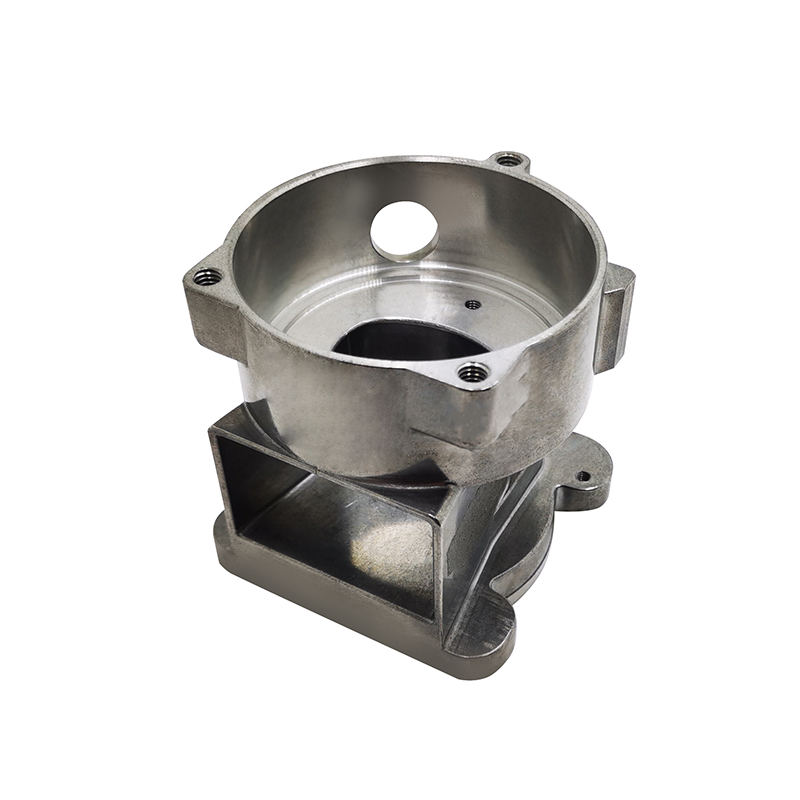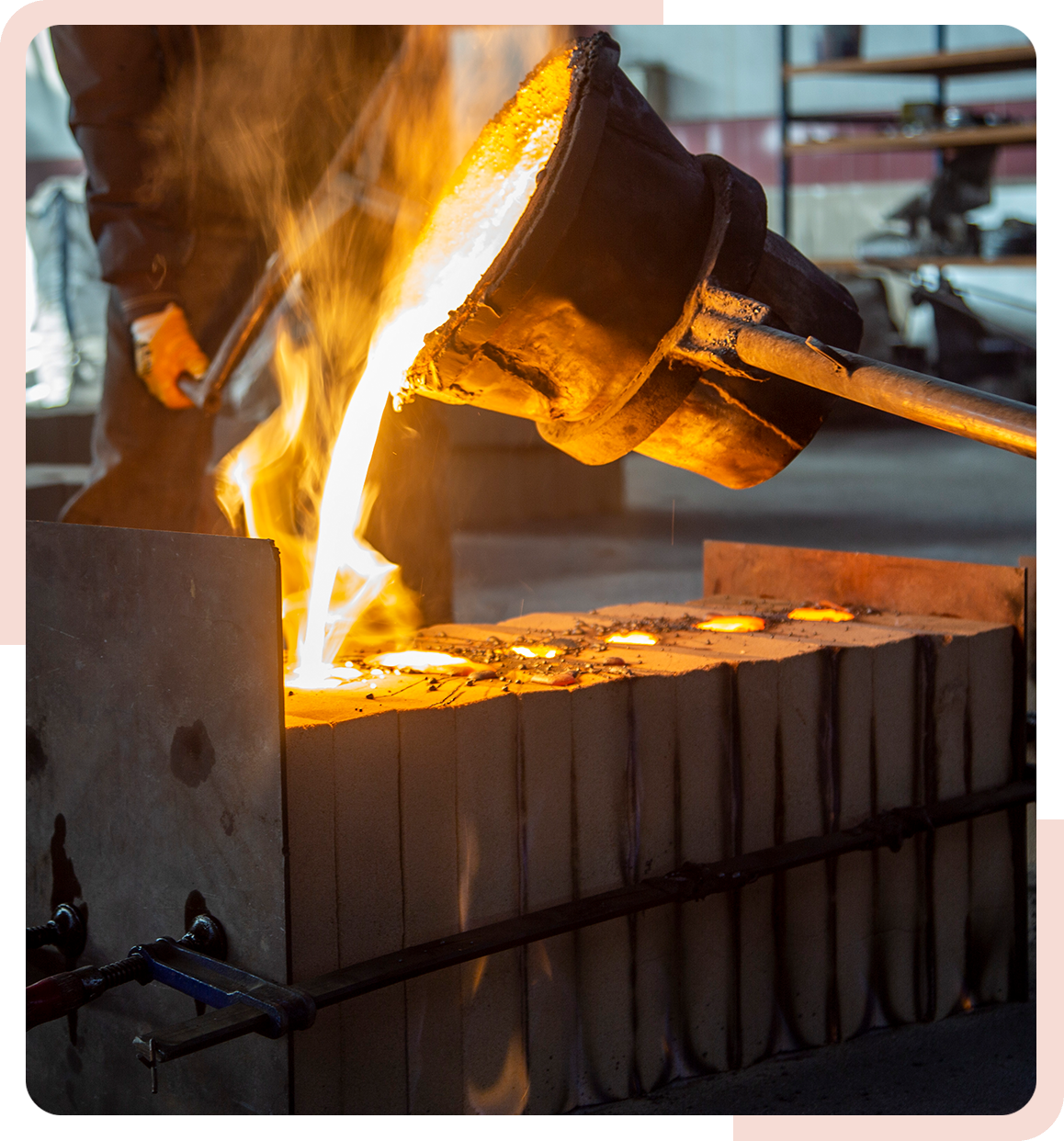Learn how aluminum casting delivers accurate manufacturing results
Wiki Article
The Effect of Cutting-edge Factory Services on Lasting Manufacturing Practices
Ingenious factory services play a vital function in advancing lasting production techniques. By incorporating reusing modern technologies and energy-efficient processes, these solutions substantially reduce environmental impact. Factories can recover beneficial products, consequently lowering dependence on virgin sources. As automation and lean manufacturing principles gain grip, production effectiveness is enhanced. The full degree of these advancements and their implications for the future of manufacturing remain to be explored.The Function of Advanced Recycling Technologies in Foundries
Advanced recycling innovations are changing the landscape of shops by enhancing material recuperation and decreasing waste. These innovative processes enable foundries to redeem beneficial metals and products from scrap, decreasing dependence on virgin sources. By incorporating sophisticated sorting, shredding, and melting strategies, shops can effectively draw out useful materials from disposed of products, thereby promoting a round economic climate.Furthermore, these modern technologies sustain the manufacturing of high-quality alloys and parts, guaranteeing that recycled materials fulfill rigid sector requirements (Precision aluminum casting). Consequently, foundries are not just enhancing their product performance but likewise decreasing the ecological impact connected with conventional production approaches
This change in the direction of progressed reusing not just bolsters financial practicality for shops but additionally lines up with global sustainability goals. Ultimately, the unification of these modern technologies represents a substantial action onward in the pursuit for sustainable production practices within the factory sector.
Energy Performance: Reducing Consumption in Manufacturing Processes
Energy efficiency in making processes is vital for lasting procedures. Strategies such as process optimization techniques, eco-friendly energy integration, and waste warmth recovery play crucial duties in lessening power consumption. By focusing on these areas, producers can significantly minimize their ecological influence while enhancing productivity.Refine Optimization Techniques
A substantial number of producing facilities are significantly embracing process optimization methods to improve energy effectiveness and reduce consumption. These methods involve fine-tuning and assessing production operations, identifying bottlenecks, and applying automation to improve operations. By leveraging data analytics, manufacturers can check power use in real-time, enabling proactive modifications to decrease waste. Methods such as Lean Production and Six Sigma concentrate on maximizing and getting rid of inefficiencies resource allocation. Furthermore, progressed innovations like Internet of Things (IoT) sensors give understandings right into equipment efficiency, helping with anticipating maintenance that prevents energy loss. Generally, these process optimization approaches not only contribute to decreased energy intake however also promote a culture of constant enhancement within manufacturing settings, lining up functional methods with sustainability objectives.Renewable Resource Assimilation
Many production centers are significantly incorporating renewable energy resources to enhance total energy performance and decrease dependence on traditional power grids. This modification consists of the fostering of solar, wind, and biomass power, which can substantially reduce functional costs and reduce carbon impacts. By utilizing these sustainable energy resources, manufacturers not just minimize their environmental effect however additionally enhance power strength. In enhancement, integrating renewable resource systems commonly includes innovative technologies such as energy storage and clever grid remedies, which enhance power use and help with real-time monitoring. This integration sustains suppliers in accomplishing regulatory compliance and meeting sustainability goals while promoting development in production processes. Eventually, eco-friendly energy assimilation stands for a critical change in the direction of more sustainable manufacturing methods and long-lasting stability.Waste Warmth Recovery
Incorporating eco-friendly energy sources establishes the stage for further innovations in energy efficiency, especially with the application of waste warmth healing systems. These systems record excess thermal power generated during producing procedures, which would otherwise be lost to the environment. By repurposing this warmth, foundries can considerably reduce their power usage, lower functional prices, and reduce their carbon footprint. The recuperated heat can be utilized for numerous applications, such as heating, power generation, or preheating resources. Because of this, waste warm healing not only improves power effectiveness but likewise adds to a lasting manufacturing model. Cutting-edge shop services that prioritize this technology are leading the way for an environmentally liable industrial landscape, aligning productivity with eco-friendly stewardship.Using Eco-Friendly Products in Factory Workflow
As the need for lasting manufacturing practices expands, shops are significantly transforming to green products to boost their operations. By including lasting options, such as recycled metals and bio-based binders, shops can substantially decrease their ecological impact. These materials frequently require much less energy for handling and can decrease harmful discharges throughout manufacturing.Additionally, the adoption of environmentally friendly products not only aligns with regulatory requirements however additionally meets customer choices for greener products. Factories are checking out cutting-edge options, such as utilizing natural ingredients that enhance mold top quality while staying safe.
The change to lasting products fosters a circular economic climate by advertising resource reuse and lessening waste. Furthermore, this adjustment can enhance the total performance of factory procedures, as environmentally friendly products frequently exhibit exceptional properties, resulting in improved item efficiency - Precision aluminum casting. Eventually, the use of green materials stands for a vital action towards sustainable production in the factory industry

Innovations in Waste Monitoring and Reduction Techniques
The shift in the direction of environmentally friendly products in factory procedures leads the way for improvements in waste management and reduction strategies. Innovative shop solutions are progressively embracing strategies that decrease waste generation and promote recycling. Techniques such as closed-loop systems enable the reuse of materials, significantly minimizing the quantity of waste created throughout manufacturing processes. Furthermore, innovations in purification and separation innovations enable the reliable recuperation of beneficial byproducts, which can be rehabilitated into the production cycle.Additionally, the execution of real-time surveillance systems provides data-driven understandings into waste generation patterns, helping with notified decision-making to enhance resource use. Foundries are also checking out biowaste solutions, converting organic waste into energy or functional materials, better advertising sustainability. These advancements not just add to a round economy however also enhance the total environmental efficiency of shop procedures, emphasizing the industry's dedication to reducing its eco-friendly impact.
The Influence of Automation on Lasting Manufacturing
While many markets go for sustainability, automation emerges as an essential variable in boosting sustainable manufacturing methods within shops. By incorporating automated systems, factories can accomplish higher performance, minimize waste, and lower power usage. Automated procedures enable exact control over production criteria, reducing defects and remodel, which subsequently preserves sources.Furthermore, automation facilitates the monitoring of environmental impacts, allowing real-time adjustments that line up with sustainability objectives. aluminum casting. Advanced robotics and expert system can maximize material usage, leading to significant reductions in scrap and emissions
In addition, automated innovations promote more secure workplace by taking care of dangerous tasks, consequently boosting employee wellness while making certain compliance with ecological guidelines. On the whole, the adoption of automation within shops not just enhances operations but additionally plays an essential role in advancing lasting production methods, adding to an extra accountable commercial landscape.
Case Studies: Effective Application of Sustainable Shop Practices
Effective execution of lasting practices in shops can be illustrated through different instance research studies that highlight ingenious strategies and measurable outcomes. One notable instance is a mid-sized foundry that took on a closed-loop water recycling system, minimizing water usage by 40% and decreasing wastewater generation. In addition, this center changed to utilizing eco-friendly mold and mildew materials, which not only enhanced item high quality yet also enhanced worker security.One more significant situation included a large factory integrating renewable resource sources, such as photovoltaic panels, which offset 30% of its energy requires. This campaign not only lowered functional expenses but additionally added to a substantial decrease in carbon discharges.
Finally, a foundry that implemented lean production methods reported a 25% rise in efficiency, leading to less material waste and optimized manufacturing procedures. These cases jointly emphasize the concrete benefits and sustainability improvements achievable through ingenious factory methods.
Regularly Asked Concerns
How Do Ingenious Foundry Solutions Add To Overall Sustainability Goals?
Innovative shop solutions improve general sustainability objectives by enhancing resource usage, decreasing waste, and boosting power performance. These innovations add to lower carbon footprints and advertise eco accountable methods within the production industry, sustaining broader sustainability efforts.What Are the Economic Conveniences of Embracing Lasting Foundry Practices?
Taking on lasting foundry techniques can lower functional costs, enhance resource performance, and improve competitiveness. Additionally, these methods can draw in eco-conscious clients and capitalists, eventually Aluminum Foundry resulting in boosted success and lasting economic viability for organizations.Exactly How Can Small Foundries Implement Sustainable Innovations Successfully?
Small shops can implement lasting developments efficiently by embracing energy-efficient technologies, enhancing source use, training team on sustainable methods, teaming up with providers for green materials, and participating in continual improvement processes to minimize waste and exhausts.What Certifications Exist for Sustainable Factory Procedures?

Just How Do Consumer Preferences Impact Lasting Production in Foundries?
Customer choices considerably affect sustainable manufacturing in foundries by driving demand for eco-friendly products. As customers focus on sustainability, factories adapt their practices, incorporating greener products and innovations to satisfy market expectations and boost their affordable advantage.By repurposing this heat, foundries can substantially minimize their power consumption, lower functional expenses, and reduce their carbon footprint. Shops are likewise exploring biowaste solutions, transforming organic waste into power or functional materials, better advertising sustainability. By incorporating automated systems, factories can achieve better effectiveness, reduce waste, and reduced energy intake. One more significant instance included a large factory integrating eco-friendly energy sources, such as solar panels, which balance out 30% of its energy requires. Innovative shop services enhance total sustainability goals by maximizing resource use, minimizing waste, and improving power efficiency.
Report this wiki page